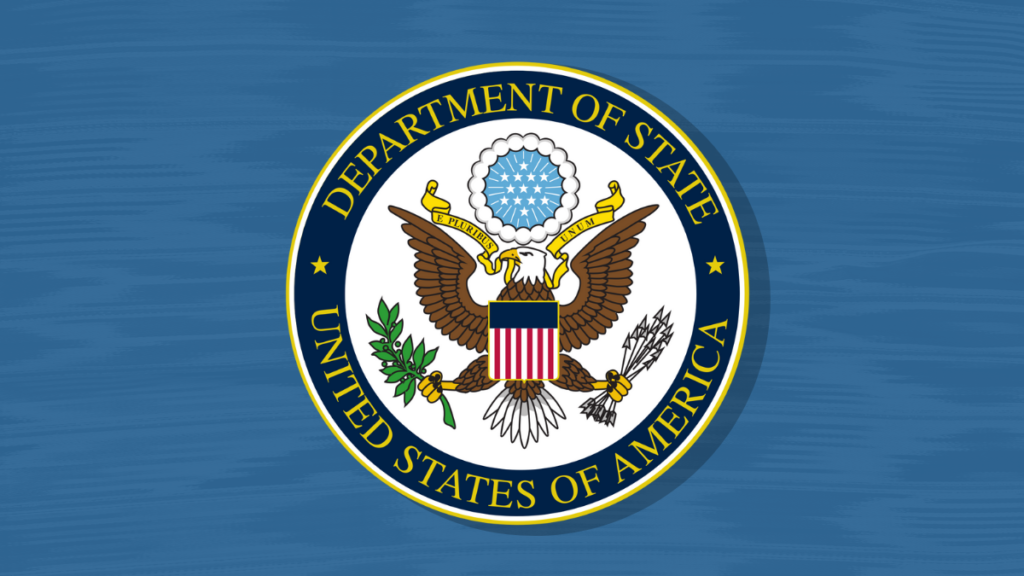UHRP Submission of information for US Statement Department 2023 TIP Report

February 1, 2023
Uyghur Human Rights Project Submission of information for US Statement Department 2023 TIP Report
The Uyghur Human Rights Project (UHRP) welcomes the opportunity to submit information for the 2023 U.S. Trafficking in Persons Report. UHRP conducts research-based advocacy to promote the rights of Uyghurs and other Turkic Muslim peoples in East Turkistan, referred to by the Chinese government as the Xinjiang Uyghur Autonomous Region, in accordance with international human rights standards. UHRP serves on the Steering Committee of the Coalition to End Forced Labour in the Uyghur Region, endorsed by 450+ groups from 40+ countries, including Uyghur organizations, trade unions, investors, and faith-based groups.
UHRP would like to provide information on China in relation to the following questions:
- Over the past year, what were the greatest deficiencies in the government’s anti-trafficking efforts?
- Effective strategies and practices that other governments could consider adopting.
Deficiencies of the Chinese government’s trafficking efforts
The Government of China is a state sponsor of forced labor, using it as but one element of comprehensive and deliberate atrocity-crime policies affecting Uyghurs and other Turkic Muslim peoples. The TIP report should point out that these policies are designated as crimes against humanity and genocide under current US policy. The 2023 report should continue to highlight the Chinese government’s “poverty alleviation” and “pairing assistance” as Orwellian terms for government-imposed forced labor programs imposed on a large scale. Please see detailed documentation published in 2022, below.
Strategies and practices that other governments could consider adopting
China’s state trafficking program of Uyghurs implicates global supply chains. UHRP recommends that the 2023 TIP report point out the continued applicability of the July 2021 Updated Xinjiang Supply Chain Business Advisory. In addition, readers of the report should be aware that in 2022, the Uyghur Forced Labor Prevention Act went into effect as of June 21. The legislation, Ensuring that goods made with forced labor in the Xinjiang Uyghur Autonomous Region of the People’s Republic of China do not enter the United States market, and for other purposes, is critically important for enforcement of existing U.S. efforts to combat trafficking by denying access to the US market for forced-labor goods.
Indeed, efforts to combat China’s state programs for Uyghur forced labor should include denying these goods access to all markets: importers and all companies in global trade must not use international markets as a “dumping ground” and profit center for forced labor. Companies must adhere to a single global standard, and must not continue to support the Chinese trafficking program by simply switching to non-U.S. markets for sales of Xinjiang-linked products. In 2022, CBP targeted $1.3 billion in imports for enforcement under the UFLPA in the first six months of implementation. This includes 1,592 imports worth nearly $500 million from June 21 through Sept. 30, 2022, and 2,600 seizures worth $806 million from October 2022 through early January 2023. Source: U.S. crackdown on Chinese forced labor (axios.com)
Key information on Chinese-government human trafficking deficiencies published in 2022:
Conceicao, Evan and Melissa Whalen. “Implementing the Uyghur Forced Labor Prevention Act: A Challenge Worth the Effort.” U.S. Customs and Border Protection. January 5, 2023. [Reporting on action in 2022 to detain goods produced by the Xinjiang Production and Construction Corps, the Chinese government paramilitary organization that has been under U.S. Global Magnitsky sanctions since July 2020. https://www.cbp.gov/frontline/implementing-uyghur-forced-labor-prevention-act
Murphy, L., Salcito, K, Uluyol, Y, Rabkin, M, et al (2022). “Driving Force: Automotive Supply Chains and Forced Labor in the Uyghur Region.” Sheffield, UK: Sheffield Hallam University Helena Kennedy Centre for International Justice, December 2022. Available online.
“Fruits of Uyghur Forced Labor: Sanctioned Products on American Grocery Store Shelves. Uyghur Human Rights Project, August 28, 2022. Available online.
Murphy, L., Vallette, J., and Elimä, N. (2022). “Built on Repression: PVC Building Materials’ Reliance on Labor and Environmental Abuses in the Uyghur Region.” Sheffield, UK: Sheffield Hallam University Helena Kennedy Centre for International Justice. Available online.
Murphy, L., Elimä, N., and Tobin, D. (2022). “Until Nothing Is Left”: China’s Settler Corporation and its Human Rights Violations in the Uyghur Region. A Report on the Xinjiang Production and Construction Corps,” Sheffield, UK: Sheffield Hallam University Helena Kennedy Centre for International Justice. Available online.
Earlier reports, for reference:
Murphy, L. and Elimä, N. (2021). “In Broad Daylight: Uyghur Forced Labour and Global Solar Supply Chains.” Sheffield, UK: Sheffield Hallam University Helena Kennedy Centre for International Justice.
Laura T. Murphy, et al. (2021). “Laundering Cotton: How Xinjiang Cotton is Obscured in International Supply Chains.” Sheffield, UK: Sheffield Hallam University Helena Kennedy Centre.
